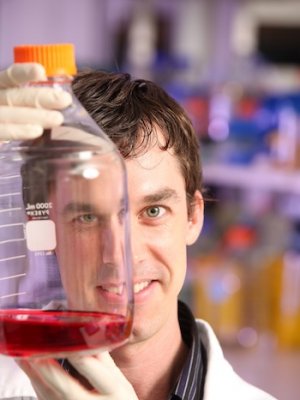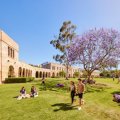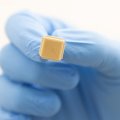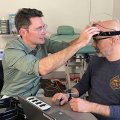
Innovative research into the human innate immune system will see Dr Trent Woodruff from The University of Queensland awarded the prestigious Edgeworth David Medal of the Royal Society of NSW for 2011.
He received the medal at the Royal Society’s Annual Dinner in Sydney last week.
The medal is awarded annually for distinguished contributions by a young scientist for work done mainly in Australia or its territories; or contributing to the advancement of Australian science.
Dr Woodruff’s groundbreaking research in the School of Biomedical Sciences at UQ has contributed to a new field of research in “complement mediated neuropathology”.
This research involves the study of a major component of our innate immune system, called the complement system.
Dr Woodruff has investigated the contribution of this part of the immune system to the development of a wide range of diseases including inflammatory diseases, and in particular, in degenerative brain diseases such as Alzheimer’s disease, motor neuron disease, Huntington’s disease and stroke.
“Neurodegenerative diseases such as Alzheimer’s disease, motor neuron disease and stroke represent a significant cause of death and morbidity in Australia, so we are working on the development of new drugs to treat these conditions,” Dr Woodruff said.
“New drugs for these conditions hold the potential for major contributions towards future health care outcomes in Australia.”
Dr Woodruff was nominated for this award by Professor Maree Smith, Executive Director, Centre for Integrated Preclinical Drug Development/TetraQ at UQ.
“This award is richly deserved recognition for Dr Woodruff’s outstanding and pioneering research as a young Australian scientist,” Professor Smith said.
“His research has not only transformed the complement field internationally but serves to inspire young people to pursue a career in science.”
Despite his early career status having only completed his PhD in Nov 2003, Dr Woodruff is a highly respected leader in his field.
In 2000, in the first year of Dr Woodruff’s PhD research, a University based start-up company (Promics Ltd) was formed to commercialise the drugs he helped to develop.
Throughout the course of his PhD, he contributed knowledge and data that aided in the progression of these drugs to human clinical trials.
On completion of his PhD in 2003, Dr Woodruff joined Promics Ltd as a senior research scientist to coordinate the completion of these human clinical trials using knowledge and data gained during his research.
Dr Woodruff returned to UQ in 2006, and was awarded an NHMRC Career Development Award in 2008, and an ARC Future Fellowship beginning in 2012.
Recently Dr Woodruff obtained a Senior Lecturer position in the School of Biomedical Sciences at UQ, where he continues his research on complement-mediated neuropathology and the identification of novel therapies to target brain diseases.
The award Dr Woodruff will receive is named after the pioneering geologist, Sir T W Edgeworth David, who wrote the first comprehensive record of the geology of Australia. This medal has been awarded since 1948, with past recipients including Lord May in 1968, Martin Green in 1981 and Tim Flannery in 1990.
Media: UQ School of Biomedical Sciences, Avril Johnston-Craig, 07 3365 1536, 0408 160 784, a.johnstoncraig@uq.edu.au
.jpg)










